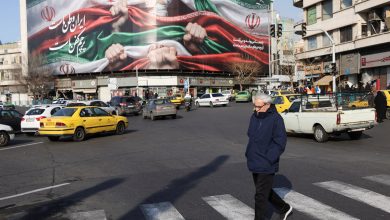October 24, 2024
Israeli Prime Minister Benjamin Netanyahu is not only one of the most powerful politicians in Israel but also one of the wealthiest. In 2019, Forbes ranked him as the fourth richest politician in the country, according to the Israeli newspaper Haaretz.
Estimates of Netanyahu’s net worth vary, with some sources suggesting his wealth could reach $80 million. Others place it at around 50 million shekels (approximately $14 million), based on reports by Times of Israel and Haaretz.
Netanyahu owns luxury properties in Jerusalem and Caesarea, with rumors of additional real estate holdings in California and New York. His real estate portfolio has become a source of public controversy, with many accusing him of using his political influence to enrich himself and his family. These accusations represent not just a political scandal but a personal crisis—one that could land him in prison. This looming threat has become Netanyahu’s deepest fear and primary obsession, pushing him to cling to power at all costs.
The Shield of Power: War as Netanyahu’s Last Refuge
Netanyahu’s primary concern lies in what will happen when he steps down from office. He faces several serious charges, including corruption, breach of trust, and bribery. Few observers believe he is innocent. His position as prime minister and the ongoing war in Gaza currently provide him with immunity from prosecution. As Gautam Mukunda, a researcher at Harvard Kennedy School, noted in an article for Forbes, Netanyahu’s position as prime minister may be the only thing keeping him out of prison.
A Historical Parallel: Netanyahu as the Modern-Day Napoleon
Mukunda draws a compelling historical comparison between Netanyahu and Napoleon Bonaparte in the latter’s final days. Faced with overwhelming opposition from the combined forces of Austria, Russia, Prussia, and the United Kingdom, Napoleon continued fighting even after it became clear that his defeat was inevitable.
Although Napoleon is remembered as one of history’s greatest military strategists, his final campaigns were marked by devastating losses. Tens of thousands of soldiers perished, not for any strategic purpose, but to prolong Napoleon’s grip on power for a few more weeks and postpone his exile and imprisonment.
The same dynamic is unfolding today with Netanyahu. Thousands of Palestinians and Israelis are losing their lives, and countless families are being displaced. But for Netanyahu, the tragedy and chaos of war offer a critical lifeline. The war is his shield—a way to delay the legal reckoning waiting for him when the conflict ends.
Netanyahu knows that the moment peace is restored, the legal system will move forward with his trial.
Not Just a Theoretical Threat: Precedents of Israeli Leaders in Jail
Netanyahu’s fear of imprisonment is not just hypothetical; precedents exist. Ehud Olmert, a former prime minister, was sentenced to prison in 2016 on corruption charges. Moshe Katsav, a former president, was convicted of rape in 2011 and served five years behind bars. These cases serve as stark reminders that even the highest offices in Israel do not guarantee immunity from justice.
For Netanyahu, the war in Gaza represents more than just a geopolitical struggle—it is his last and only gamble. The overwhelming domestic and international pressure to end the conflict has so far failed to sway him. Netanyahu knows that stepping down could lead directly to his imprisonment, making war the only option that keeps him in power.
The Corruption Cases Haunting “The King of Israel”
Despite styling himself as the “King of Israel,” Netanyahu now finds himself on trial. He faces three major corruption cases, known by their official designations: Case 1000, Case 2000, and Case 4000. According to the BBC, these cases involve serious allegations of bribery, fraud, and breach of trust.
- Case 1000: Involves allegations of receiving expensive gifts from wealthy supporters in exchange for political favors.
- Case 2000: Focuses on media manipulation, where Netanyahu allegedly struck deals with newspaper publishers to receive favorable coverage.
- Case 4000: Perhaps the most severe of the three, this case accuses Netanyahu of offering regulatory benefits to Bezeq, Israel’s largest telecom company, in return for positive media coverage on the Walla News website.
These charges paint the picture of a leader who has systematically used his office to serve personal interests rather than public good. The war in Gaza, therefore, becomes a desperate attempt to avoid accountability. As long as the conflict continues, Netanyahu retains the legal immunity that comes with his position as prime minister. However, once the war ends, the courts will likely proceed with his trial—and the outcome could mirror the fate of Olmert and Katsav.
Netanyahu’s situation reveals a dark reality: his political survival is tied to the continuation of war. His decisions are driven not just by strategic interests but by a personal struggle for freedom. The cost of this struggle, however, is being paid in the lives of Palestinians and Israelis alike.
For more detailed analysis, visit our website at DZWATCH.DZ.
Author: nor-eleslam
Key terms: Netanyahu, corruption, war in Gaza, political survival, bribery, Israel




